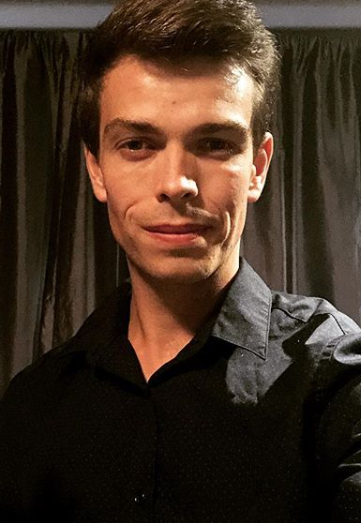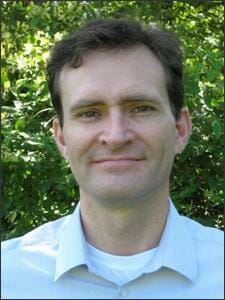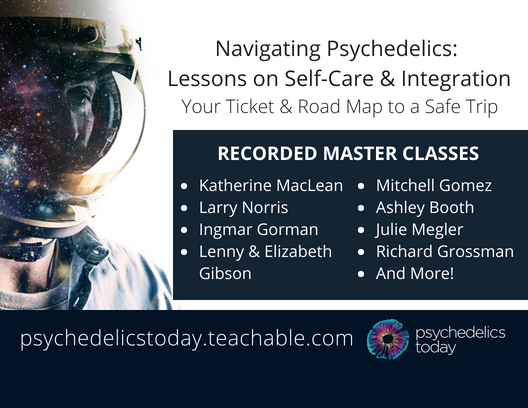In this episode, Joe and Kyle interview Jake Mitchell from the Flight of Thoughts Podcast.
Jake has spent 4 years as a Paramedic in Canada and leads trainings around mental health, first aid and is bringing better practice of psychedelics into the psychedelic space.
3 Key Points:
- It’s so important to know your substances and get a testing kit so you know its not laced and you know exactly what you're taking.
- More people seek help when they look at an overdose or a difficult experience as if they are suffering versus breaking the law. Decriminalization at the least, would help make people be seen as a patient and not a criminal.
- Most police aren't trained on mental health issues, and they have shot and killed people because they don't know how to correctly respond to issues like schizophrenia. We need more mental health training among our law enforcement.
Support the show
- Patreon
- Leave us a review on iTunes
- Share us with your friends – favorite podcast, etc
- Join our Facebook group - Psychedelics Today group – Find the others and create community.
Navigating Psychedelics
Show Notes
About Jake
- He had major depression and didn't know it, and started to use cannabis as a useful tool for his depression
- He started to notice some of the first responders use MDMA and Psilocybin off-duty to help with their PTSD
- “PTSD for those who have been in combat is more understood than for first responders with it, people think that we can just handle it.” - Jake
- There are levels of trauma that don't qualify daily for PTSD, but for police and firefighters and such, they can be triggered by certain events
- It's hard to say what percentage of first responders use cannabis, MDMA and psilocybin for personal therapeutic use
- Jake says he knows of at least a quarter of first responders who have been open about their use
- There is a new initiative that if police use cannabis, even right before their shift, as long as they are ‘fit for duty’ they won't be scrutinized
CBD
- CBD counteracts the effects of THC, THC binds to CB1 receptors, and CBD binds to CB2 receptors
- CBD is similar to Advil
- If someone has taken too many edibles, they can take Advil to counteract the effect of the THC
- It counteracts the THC similar to how CBD does
- People used to say to have a good night, eat a pot brownie, but it's a better idea to smoke for the first time than to eat an edible
Harm Reduction - Teaching People How to Respond to Overdose
- They are teaching people about harm reduction kits or when to call an ambulance
- Know your substances, and get a testing kit so you know its not laced and you know exactly what you're taking
- Know what breathing technique you want to use if you “feel the fear” setting in
- If you know someone is on a clean substance, you can try to help them through it, but if it could be laced (with fentanyl, etc) call an ambulance
- If someone is unresponsive, that's a sign they could be overdosing
- You can rub as hard as you can with your knuckles on their chest and scream their name, and if they don't wake up, that's a good sign to call 911
- Always turn them on their side so that their air passages open up and they don't asphyxiate on their tongue or vomit
- If you are informed on how to use narcan and you think they are overdosing on fentanyl, use it
- If they are awake and are psychologically freaking out, just sit them down and simply ask them “how can I help?” They might want something as simple as some water or to go for a walk
- Knowing your dose is so important
- LSD and psilocybin don't have cardiac effects, they don't shut off breathing, so you shouldn't have a reason for feeling like your going to actually die unless it's been laced
- MDMA is one you have so worry about but you'd have to take hundreds and hundreds of milligrams
- Fentanyl test strips are $2
- They are only $1.50 if you buy 100 or more
Drug Showmanism
- The first option should always be cannabis
- Usually the only reason that people overdose on heroin is because it's laced with pharmaceuticals
- Advil and Tylenol work similar to opioids
- Sometimes we have emotional trauma and it comes out as physical pain
- More people seek help when they look at it as that they are suffering versus breaking the law
- Narcan costs $20-$40
- An overdose death costs $30,000
- In Canada, the pharmacist will inform you on how to use Narcan
- Jake says he hopes that the US will catch up Narcan availability and use
- The grinding of the teeth after taking MDMA may be a sign that it contains amphetamine
- Decriminalization at the least, would help make people be seen as a patient and not a criminal
A Healthcare Issue, Not a Crime
- The Good Samaritan Act in Canada says if you have minor possession of a substance and not a traffic-able amount, and you call the ambulance for an overdose, you will not be searched or charged
- Most police aren't trained on mental health issues, and there have been situations of people with schizophrenia having a moment in public, and because the police don't have education on signs to look for, they have shot and killed the victim
- 23 and Me, the gene testing company has found that over 180,000 genes tested have been linked to schizophrenia
- High THC levels can make schizophrenia worse, where CBD can counteract it
Serotonin Toxicity
- Jake says he's been hit in the face by someone on PCP
- It took 6 police to hold one person down.
- Another time, there was a guy who was wearing underwear in freezing weather, punching cars driving at almost 40 miles an hour
- They were snorting Wellbutrin, an antidepressant that works as a stimulant when snorted
- Serotonin syndrome is super dangerous
- Ketamine is used in the ER for scenarios like this
- Does taking MDMA too frequently ruin your serotonin system?
- Emanuel Sferios - the number one risk of using MDMA is you might not get high from it anymore
Addiction
- Type II Diabetes is a symptom of sugar addiction
- Sugar and carbs create bacteria in the gut that releases plaque in the blood
- Technology addiction - Jake had a patient that sliced an artery and was texting and on candy crush and Snapchat
Links
Check out this FREE online course, "Introduction to Psychedelics"
About Jake

Jake is a Primary Care Paramedic with experience in emergency response, evidence-based research practice, harm reduction techniques, and crisis intervention. He is the Founder of The Psychedelic Society of First Responders and Emergency Workers.
In this interview, Brian Pace interviews Dr. Jason Slot at Ohio State University. In the show, they talk about Jason’s contributions of the psilocybe genus. Jason is in the faculty at OSU in the department of plant pathology.
3 Key Points:
- There are over 200 species of mushroom forming fungi that produce psilocybin, and Jason studies how and why these organisms produce the psychoactive compound.
- Animals seek altered states of consciousness as a potential evolutionary mechanism.
- Mushrooms use horizontal gene transfer to pass on their psychoactive properties.
Support the show
- Patreon
- Leave us a review on iTunes
- Share us with your friends – favorite podcast, etc
- Join our Facebook group - Psychedelics Today group – Find the others and create community.
Navigating Psychedelics
Show Notes
About Jason
- "There weren't many mycology job postings in the area, and a job came up for someone to study the evolution of fungal genomes" - Jason
- It all just fell into place
What is Neurochemical Ecology
- Ecology is the interaction among organisms and their interaction with their environment
- Neurochemical ecology is a special case where the chemicals are specifically targeted to processes of nervous systems in animals
- There is an opportunity for plants and fungi to produce drugs and compounds that manipulate their behavior or inhibit their eating
Species that Produce Psilocybin
- There are over 200 species of mushroom forming fungi that produce psilocybin
- Jason has found many more
Distribution of Psilocybe
- Mushrooms were anatomically modern
- There were flowering forests and wood that spanned to each of the poles
- The supercontinent would have broken up after that and as the continents separated, so did the mushrooms
- Humans have been distributing psilocybe through the dung of migrating animals
Columbian Exchange
- During colonization from the old world to the new world, there was the biggest exchange of fungi
- If the amount of biomass and dung expands, then the number of fungi species evolves and grows
- The underlying change in the climate that changes the planet from forested to open grasslands also has an impact
- During human evolution, psilocybe has been around the whole time
- These neurochemicals have dated human genus
Serotonin
- Serotonin is analogous to psilocybin
- Bacteria was the first organism making serotonin
- Insects produce serotonin
- “Serotonin is a great key, it fits into a lot of different locks and is used in a lot of different ways” - Jason
- It's in plants, its in amoebas, and its in animals
- In animals, they have specialized a lot of different receptors that respond to serotonin
- Serotonin only interacts with one type of receptor in the body
Altered States of Consciousness
- “It must be like something to be a bat, and it must be different than what it's like to be a human, what must it be like to be a bat under the influence of psilocybin, is it anything like a human?” -Brian
- Animals seek altered states of consciousness
- Bees seek out fermented grapes
- We have video footage of foxes taking huge bites out of Amanita Muscaria
- Seeking out intoxication is a natural human drive
- Maybe the desire to seek out these altered states of consciousness is an evolutionary mechanism that is happening
- If you search out new ways of perceiving the world, you may come upon a new pattern that your group of species learns how to live better
- If ants come back to the hive too drunk, they get punished and get bit
Language
- One of the ways humans distinguish ourselves
- We have specialized vocal chords, and tongues that make our language unique
- Terrence - Stoned Ape Theory - the thesis was that psilocybin mushrooms were a part of the diets of the hominids
- There was some kind of co-evolutionary relationship that may have resulted in human language
Psilocybin’s role in our development
- “What kind of role did psilocybin mushrooms play in our development?”
- The hominids came down from the trees and now they are standing upright
- We have to look at opportunity, constraints, etc.
- If the ape eats psilocybin, it may have an idea or understands its environment better
- It may help the ape acquire more food or expand into new territory
- The access to food and changes in locomotion are huge forces in our evolution
- Having fire to cook our meat and change our availability to nutrients is one of the biggest forces in evolution of human consciousness than mushrooms
Horizontal Gene Transfer
- Vertical transfer of information means from parent to offspring
- Horizontal transfer of genetic information happens between species
- One bacteria has a gene to resist an antibiotic, and another doesn't. One bacteria can obtain that gene from the antibiotic resistant bacteria (ex. Antibiotic-resistant staphylococcus)
- Gene transfer can happen in multicellular creatures like mushrooms
- Fungi are exchanging genes through different species
- Paneolis Mushrooms did not inherit the biosynthetic pathway to produce psilocybin, they received it from a totally different genera
KT Extinction
- A comet impact that caused havoc and climate change that resulted in the extinction of dinosaurs
- Mega herbivores, putting out tons of herbivore dung
- The genes to make psilocybin were acquired by a dung loving Paneolis from a dung loving Psilocybe
- Dung attracts flies, but it doesn't kill the insects that eat psilocybin
- Psilocybin is one of the safest drugs for consumption
- The amatoxin in Amanita Muscaria (The Destroying Angel, commonly mistaken with Matsutake), interrupts the central part of cellular metabolism
Identifying Genes in Psilocybin
- He sequenced 3 different species of mushrooms that make psilocybin, and then looked at one species that didn't make psilocybin
- They take two pieces of DNA and then compare them
- They all have those genes, but how did they get them?
- Validated the biosynthesis of psilocybin
- Mediated Horizontal Gene Transfer
- When fungi are under stress they take the DNA from their environment
Cicada Parasitism
- There are cicada pathogens that infect the cicadas before they emerge from their ‘underground’ and their rear end is transformed into these spore producing structures
- They fly around and drop their spores all over
- Are these plants or fungi are using any of these neurochemicals in house for cognition?
- Turing test - a computer can convince you that it's human
Link
Check out this FREE online course, "Introduction to Psychedelics"
About Jason

Jason Slot is an Evolutionary Biologist that studies topics in three major areas, the genomic and metabolic bases of fungal adaptation and niche, horizontal gene transfer mechanisms and the evolution of symbioses. He is in the Department of Plant Pathology at Ohio State University.
In this episode, Joe interviews Philip Wolf founder of Cultivating Spirits, a cannabis pairing company. The talk includes topics on Terpenes, Social Consumption and the Cannabis experience industry.
3 Key Points:
- Terpenes are the component in cannabis that produce the aroma and ‘mood’ you will be in after smoking.
- As more and more places legalize cannabis, the market opportunity for combining food and cannabis grows.
- Cultivating Spirits is a cannabis experience and tour company that offers small-batch cannabis, fine wines, and locally sourced gourmet meals. They are a leader in cannabis-infused experiences.
Support the show
- Patreon
- Leave us a review on iTunes
- Share us with your friends – favorite podcast, etc
- Join our Facebook group - Psychedelics Today group – Find the others and create community.
Navigating Psychedelics
Show Notes
About Philip
- Philip has been in the legal industry of cannabis in Colorado for 9 years
- Cultivating Spirits started in Breckenridge, Colorado in 2014 after legalization
- He went to a wine experience event and had an epiphany of bringing the cannabis experience to the ‘soccer mom’
- He walked away from equity in multiple companies because he believed in it
- Cultivating Spirits is the first company to offer a cannabis pairings experience
- After learning about terpenes he learned about pairing foods with attributes of cannabis
Terpenes
- There are 3 components in cannabis that give you certain feelings
- THC gets you high, gives a euphoric feeling
- Flavonoids
- Terpenes produce the aroma of cannabis and it determines the ‘mood’ you will be in after smoking
- Terpenes are produced in all plants and produce, they attract pollinators and help fight disease within the plant
- THC-A is non-activated THC, meaning it needs a flame or heat to activate it
- Michael Pollan’s book - Botany of Desire
- At the base genetic level, our goal is to reproduce and expand
- “Are we the workers for this plant?” - Philip Wolf
People’s Reactions
- They are loving it!
- The average age for a person who attends Cultivating Spirits is 45
- Cultivating Spirits focuses on parties and events
- Old folks are some of the best clientele, they don't have jobs and they are done with all of the hassles of making a family and working hard for their job, etc.
Microserving
- Microserving is one hit
- Holding cannabis in longer doesn't get you higher, it's about the surface area of your lungs
- So if you expand your lungs very lightly, you will get less high than if you would if you fully expand your lungs when taking a hit
Expansion
- Cultivating Spirits operates all over Colorado
- They are working to expand to Las Vegas
- They also opened up Cannabition
- They are taking this business to other places with good heart
Cannabis Nightclubs and Social Consumption Lounges
- Cannabis isn't the reason for the decline in alcohol sales, but the desire for new experiences
- Philip believes it will happen first through coffee shops
- Everyone needs food, so it's a great market to integrate into
- “I use cannabis like I use a cup of coffee, I use it, but I don't use it all day” - Philip Wolf
Cannabis… Psychedelic?
- There is a psychoactive part to cannabis
- Philip says he uses cannabis to deepen his meditation and yoga practice
- He is a Certified Yoga Teacher
- Although he is certified to teach, he did it for himself and to learn tools he can use during his whole life
- Cannabis is a mirror - it's what’s inside already but getting amplified
First Dinner Approved by Municipality
- The opening of X-games in Aspen, CO in 2015
- 5 courses, 5 wines, 5 strains of cannabis
- A DJ from Thievery Corporation deriving beats from where the food dishes come from
- Jessica Catalano - Infusion Chef
Learning More
- Lemonine makes your mind energized and Alphapinine and Betapinine will help you focus Leafly
- Essential oils are made up of terpenes Doterra
- Max Montrose - Trichome Institute
- Daniel McQueen - Medinical Mindfulness
Links
Cultivating Spirits Website
Cannabis Wedding Expo
Facebook
Check out this FREE online course, "Introduction to Psychedelics"
About Philip Wolf

Philip Wolf is one of the world’s first pot sommeliers, an expert and pioneer in the field. In 2014, he opened Cultivating Spirits with a mission to show mainstream America how cannabis should be treated. Setting tables with forks, wine, and pipes, Wolf’s pairings are grounded in the science of interpening, which the institute calls “a method used to identify and understand cannabis variety [by] interpreting … terpenes and flower structure.” Wolf can sniff a bud, identify the strain and terpenes, and interpret both the flavor profile and high. The protocol for his dinner with bud pairings is puff, eat, drink.
Today in the show, Joe talks to Maria Carvalho and Helena Valente, founding members of Kosmicare, a drug testing, and harm reduction service at the Portugal Festival, Boom. Joe talks to Maria and Helena on their personal backgrounds, how they got into Boom, research on recreational use, what harm reduction looks like, and what populations are underserved. Drug use is decriminalized in Portugal, and the focus of risk minimization has been useful in getting the population served versus putting people in prison.
3 Key Points:
- Kosmicare is a harm reduction and psychedelic emergency service starting at Boom music festival in Portugal. Working to support other events in Europe.
- Boom is in Portugal, where drugs are decriminalized and drug testing is legal. Drug policy has directly affected the number of emergencies that Boom has had.
- The Portuguese drug policy has resulted in fewer overdoses, drug-related deaths, and HIV infection. Other countries like the US should consider a drug reform with the current opioid crisis.
Support the show
- Patreon
- Leave us a review on iTunes
- Share us with your friends – favorite podcast, etc
- Join our Facebook group - Psychedelics Today group – Find the others and create community.
Navigating Psychedelics
Show Notes
About Kosmicare
- Kosmicare is a non-profit organization that looks to transform nightlife culture through humanistic, comprehensive and evidence-based policies and interventions
- They work toward a world where drugs can be used with liberty and wisdom
- Making festivals safe in Europe
About Maria
- Psychologist, graduated in 1999 at University of Porto
- She started working in the field of problematic drug use
- Growing up in a difficult neighborhood was her purpose for getting into studying psychology and drug use
- She began focusing on recreational use
- Her younger brother was into the Electronic Dance scene and positioning himself with using substances
- She was interested in studying other motivations to use drugs than just using drugs to feed a problem
- She heard an announcement by MAPS in 2008 recruiting volunteers to do work in psychedelic emergency at Boom
- It was the perfect match considering her interest in psychology and drug use in recreational environments
About Helena
- Helena is a Psychologist who was interested in drug use
- She wanted to have field experience, and she volunteered in a needle exchange program
- She began working for a harm reduction project to work in recreational settings that needed volunteers
- She became interested in the potential that drug checking has in the harm reduction strategy
- They are working toward a ‘drop-in’ where people can show up to a permanent space for drug checking and harm reduction
The Numbers
- Over 20,000 people showed up to Kosmicare’s information session
- This year for the first time, Kosmicare had an HPLC (High Performance Liquid Chromatography) to identify LSD and pills
- They tested over 700 drug samples in 6 days
- Maria says half of the Boom population gets in contact with Kosmicare
- They serve 1% of the Boom population for psychedelic emergency (about 350 cases out of 35,000 attendees)
- The episodes usually have to do with psycho-spiritual situations versus just an emergency about the drug taken
Psychedelic Emergencies
- Boom is a transformational festival that hosts attendees from over 50 countries
- Boom is different from Burning Man in that Boom is in Portugal which has a much more legal framework which helps with the services that can be offered
- Drug policy has directly affected the number of emergencies that Boom has
- Joe states that there are numbers of regulatory police at Burning Man
- Kosmicare is included in the entire setup of Boom, which helps reduce the number of scenarios that would cause an emergency at the festival, such as providing shaded areas all over
- It gets up to 43 degrees Celcius (108 Fahrenheit)
- But there is a water element so people can refresh themselves
- In the largest dance areas at the festival, they included medical emergency Teepees so attendees could be helped as quickly as possible
Recreational Drug Use
- They did a survey on recreational drug use and most of the respondents said they use drugs in a beneficial way that doesn't interrupt their lives in a bad way
- Similarly with Boom attendees, most of them want to use harm reduction techniques so they have positive experiences and don't develop problems with their drug use
- Mat Southwell “drug users are calculated risk takers”
- “The legal framework has a terrible influence on people's relationship with drugs” - Helena
Lessons Learned
- Maria says they have had many groundbreaking challenges
- In 2016 they had someone die on them while having a psychedelic emergency
- It made her really question why she was doing this
- Her first impression was that she was doing this work to save the inexperienced user
- She was caught off guard by the person who died because they were an experienced user and didn't taking unadulterated substances
- “People may go over the top for a wide variety of reasons, it was the biggest lesson I learned working for the Psychedelic Emergency services” - Maria
- It's hard to determine people's ability to calculate risks
- If the person had collapsed in front of an urban hospital in the city, the Hospital couldn't have done anything more than what they did at Kosmicare
Collaborations
- Kosmicare has a collaborative relationship with Zendo
- MAPS was hired by Boom to direct the harm reduction services
- They use a lot of Stan Grof techniques for transpersonal psychology
- They are partnered with many other organizations in Europe that are trying to deliver the same type of psychedelic emergency and harm reduction services
The Risks of Drug Policy
- Joe points out that there are so many festivals happening without these services
- The Rave Act prevents companies from attending festivals because it “harbors” drug use
- In Portugal, the fact that drug use is decriminalized, it opened up a legal framework around harm reduction
- Portugal is one of the few countries where drug checking is allowed by law
- The Portuguese drug policy has resulted in fewer overdoses, drug-related deaths, HIV infection, tuberculosis and other things
- Helena says that the US should rethink their drug policy considering the opioid epidemic
- In Portugal, there were only 12 overdose cases with heroin and opioids
Portugal before the Drug Policy
- In the 80’s, there was a heroin epidemic, which had an epidemic of high infection rates and HIV. This motivated the policy change
- It was evident that prohibition was not working
- Usually when it affects only poor people, no one cares, but the fentanyl crisis is affecting all sorts of populations
Links
Check out this FREE online course, "Introduction to Psychedelics"
About Maria

Maria Carmo Carvalho, Kosmicare Manager, Boom Festival, Portugal, is a Lecturer at the Faculty of Education and Psychology at the Catholic University of Portugal. She researches if the field of psychoactive substance use and has completed a MSc and a PhD at the University of Porto on the field of psychoactive substance use, youth and recreational environments. She is Vice-President of ICEERS and Kosmicare Boom Festival manager since 2012.
About Helena

Helena Valente began working with people that use drugs in 2004, focusing in nightlife settings. Helena has a vast experience in coordinating national and European projects in the drug field. At the moment she is a researcher and PhD. Candidate at the Faculty of Psychology and Educational Sciences of the Porto University and founding member of Kosmicare Association.

